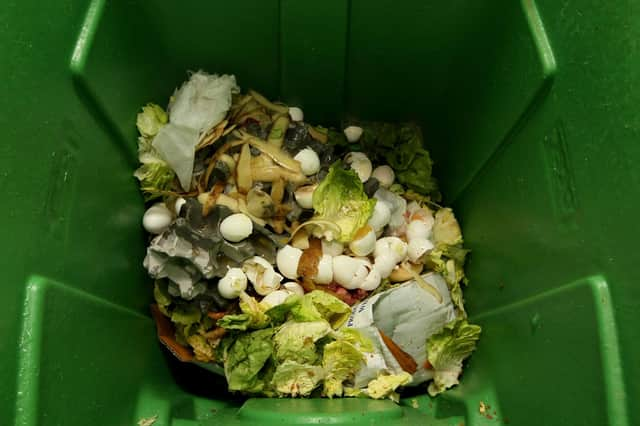Food waste can be dramatically reduced by technology that could also save time and money and help us eat healthier meals – Professor Stephen Salter


Moving household waste to landfill is not cost-free and it produces methane which has a much greater potential greenhouse gas effect than carbon dioxide.
Those wealthy enough to waste food do so mainly because they have very little idea what their fridges and freezers contain, when they bought the contents, and which items are approaching their use-by date.
Advertisement
Hide AdAdvertisement
Hide AdIf this information was made easily and instantly available, we could make useful reductions in food waste and time spent food shopping. A possible method to do this uses smartphones and other digital devices.
Almost every food item sold in the UK is scanned by a barcode reader. Supermarkets do this to enable reordering. Almost every payment for food made by the owner of a smartphone or tablet will be by debit card.
Data from the barcode reader could be sent to a digital device, identified from the debit card number, which would be able to list items in various ways, such as in order of most imminent use-by date or shortage related to a chosen desirable stock level. Items which are dangerously past their safe use-by date could flash a warning or even sound an alarm.
As food is used in the kitchen, items could be swiped off like unwanted telephone numbers. People would be able to check their mobile phones while they were shopping to remind them of what they have forgotten.
And the ‘remember to buy’ list could be arranged in order of the shelving of the supermarket to save time. It would be possible for a smartphone to ‘know’ which items are close. Applications can be written to suggest recipes to use what food is available and what other items might be an improvement.
It would also be possible for software applications to link food purchases to family size and age so as to warn of dangerous dietary patterns. Obesity risks are at present affecting more than a quarter of the UK population.
The right software will give consumers a substantial saving of money and shopping time, but the major and most obvious difficulty will be persuading supermarkets and food producers to reduce their sales by some quite large fraction of 30 per cent.
This reveals a defect in the capitalist system with much wider implications. However, if the idea is adopted by a single supermarket chain, it will attract the more environmentally conscious customers who may spend a part of their savings on more expensive items.
Advertisement
Hide AdAdvertisement
Hide AdThere may also be a valuable reduction of time spent per customer and a smaller requirement of floor area, but we must find a way to pass some of the consumer savings to the other groups in the food chain. We can hope that supermarkets will accept unwelcome outcomes provided that their competitors accept them too.
One issue is that not everyone has a digital device, but people who cannot afford even a second-hand one do not waste much food. Another is that the number of digital devices is rising to the point where they may pose a waste-disposal problem, as well as a solution.
Stephen Salter is emeritus professor of engineering design at the University of Edinburgh
A message from the Editor:
Thank you for reading this article. We're more reliant on your support than ever as the shift in consumer habits brought about by coronavirus impacts our advertisers.
If you haven't already, please consider supporting our trusted, fact-checked journalism by taking out a digital subscription.
Comments
Want to join the conversation? Please or to comment on this article.
